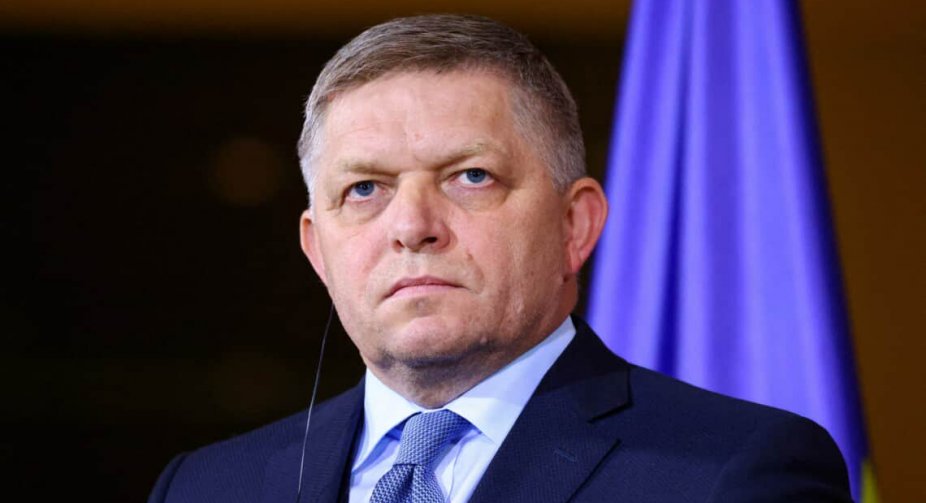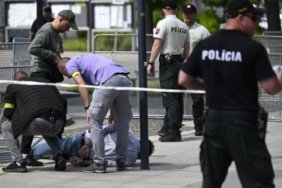Slovakia has dismantled the Special Anti-Corruption Prosecutor's Office, despite the outrage of EU officials. By the order of Slovak Prime Minister Robert Fico, a special prosecutor's office that dealt with bribery cases has been liquidated. This was reported by Politico.
The Slovak parliament supported the changes on February 9, 2024. Corruption cases will be transferred to regional prosecutors. This move caused outrage in Brussels, and EU officials expressed their concern about the violation of the rule of law.
"The EU executive is under pressure from the European Parliament to 'show its teeth' on rule of law issues after deciding to unblock billions in EU funds earmarked for Hungary that had been frozen over concerns about the independence of the judiciary. The European Parliament has filed a lawsuit against the move, claiming that the Commission has violated its obligation to ensure that taxpayers' funds are not used as intended," the publication notes.
Vice President of the European Parliament Martin Hojsík believes that the European Commission will take the situation in Slovakia seriously.
"The Commission is much more inclined not to repeat the mistakes that happened in Hungary regarding the situation that was tolerated for too long and Orban was allowed to escalate," he said.
There is now concern that Slovakia could be next.
"We are discussing the medium-term budget. We cannot undermine the internal confidence of the member states that we are not taking good care of finances. And we are not the guardians of their money. And it's very naive of Fico to believe that he can get away with it," Hojsík said.
Hojsík also warned that if the Fico's government continues on its illiberal path, Slovakia could risk losing access to EU funds. EU Justice Commissioner Didier Reynders sent a letter in December asking the authorities not to abolish the prosecutor's office.
The head of the European Public Prosecutor's Office, Laura Codruța Kövesi, told POLITICO in February that she was "very concerned" and sent a letter to the Commission outlining her concerns. Fico's reform of the Criminal Code sparked massive protests across the country and angered the opposition.
According to the publication, in late February, the Slovak Constitutional Court suspended part of Fico's reform of the Criminal Code, which reduced the penalties for corruption and shortened the statute of limitations for serious crimes such as rape. However, the Constitutional Court's decision did not block the dissolution of the special prosecutor's office and the removal of its head, Daniel Lipšic.
"Lipšic and his people have been systematically persecuting Fico and Fico's friends for the past three and a half years. Lipšic is the most important enemy of Fico and his people, not the opposition, not intellectuals," the publication said, citing experts.
Special Anti-Corruption Prosecutor's Office is dismantled in Slovakia despite outrage of EU officials - Politico
Special Anti-Corruption Prosecutor's Office is dismantled in Slovakia despite outrage of EU officials - Politico

Recommended News

Slovakia has dismantled the Special Anti-Corruption Prosecutor's Office, despite the outrage of EU officials. By the order of Slovak Prime Minister Robert Fico, a special prosecutor's office that dealt with bribery cases has been liquidated. This was reported by Politico.
The Slovak parliament supported the changes on February 9, 2024. Corruption cases will be transferred to regional prosecutors. This move caused outrage in Brussels, and EU officials expressed their concern about the violation of the rule of law.
"The EU executive is under pressure from the European Parliament to 'show its teeth' on rule of law issues after deciding to unblock billions in EU funds earmarked for Hungary that had been frozen over concerns about the independence of the judiciary. The European Parliament has filed a lawsuit against the move, claiming that the Commission has violated its obligation to ensure that taxpayers' funds are not used as intended," the publication notes.
Vice President of the European Parliament Martin Hojsík believes that the European Commission will take the situation in Slovakia seriously.
"The Commission is much more inclined not to repeat the mistakes that happened in Hungary regarding the situation that was tolerated for too long and Orban was allowed to escalate," he said.
There is now concern that Slovakia could be next.
"We are discussing the medium-term budget. We cannot undermine the internal confidence of the member states that we are not taking good care of finances. And we are not the guardians of their money. And it's very naive of Fico to believe that he can get away with it," Hojsík said.
Hojsík also warned that if the Fico's government continues on its illiberal path, Slovakia could risk losing access to EU funds. EU Justice Commissioner Didier Reynders sent a letter in December asking the authorities not to abolish the prosecutor's office.
The head of the European Public Prosecutor's Office, Laura Codruța Kövesi, told POLITICO in February that she was "very concerned" and sent a letter to the Commission outlining her concerns. Fico's reform of the Criminal Code sparked massive protests across the country and angered the opposition.
According to the publication, in late February, the Slovak Constitutional Court suspended part of Fico's reform of the Criminal Code, which reduced the penalties for corruption and shortened the statute of limitations for serious crimes such as rape. However, the Constitutional Court's decision did not block the dissolution of the special prosecutor's office and the removal of its head, Daniel Lipšic.
"Lipšic and his people have been systematically persecuting Fico and Fico's friends for the past three and a half years. Lipšic is the most important enemy of Fico and his people, not the opposition, not intellectuals," the publication said, citing experts.





